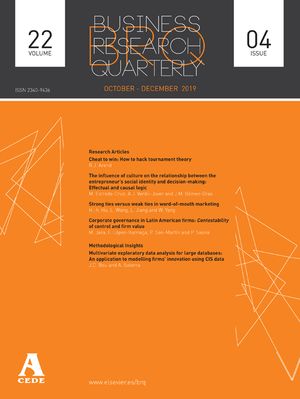El objetivo de la investigación es obtener una taxonomía de sistemas de retribución para puestos directivos. Hemos realizado el estudio con una muestra de 52 grandes empresas que operan en España. La técnica cluster nos ha permitido agrupar a estas empresas en función de las decisiones sobre evaluación y retribución que adoptan, considerando estas decisiones por separado y también conjuntamente. La principal contribución del estudio la constituye la identificación de peculiaridades en los sistemas de retribución de las empresas que operan en España.
The aim of this research is to discover the way in which Spanish companies design their reward systems. We have considered decisions on performance appraisal issues and on formal rewards issues. Using cluster analysis with a sample 52 large companies, we have identified three types of performance appraisal and reward systems, three types of reward systems and four different types of reward systems (considering at the same time performance appraisal and compensation decisions). The main contribution in this work is the identificatión of peculiarities in reward systems in Spain.




